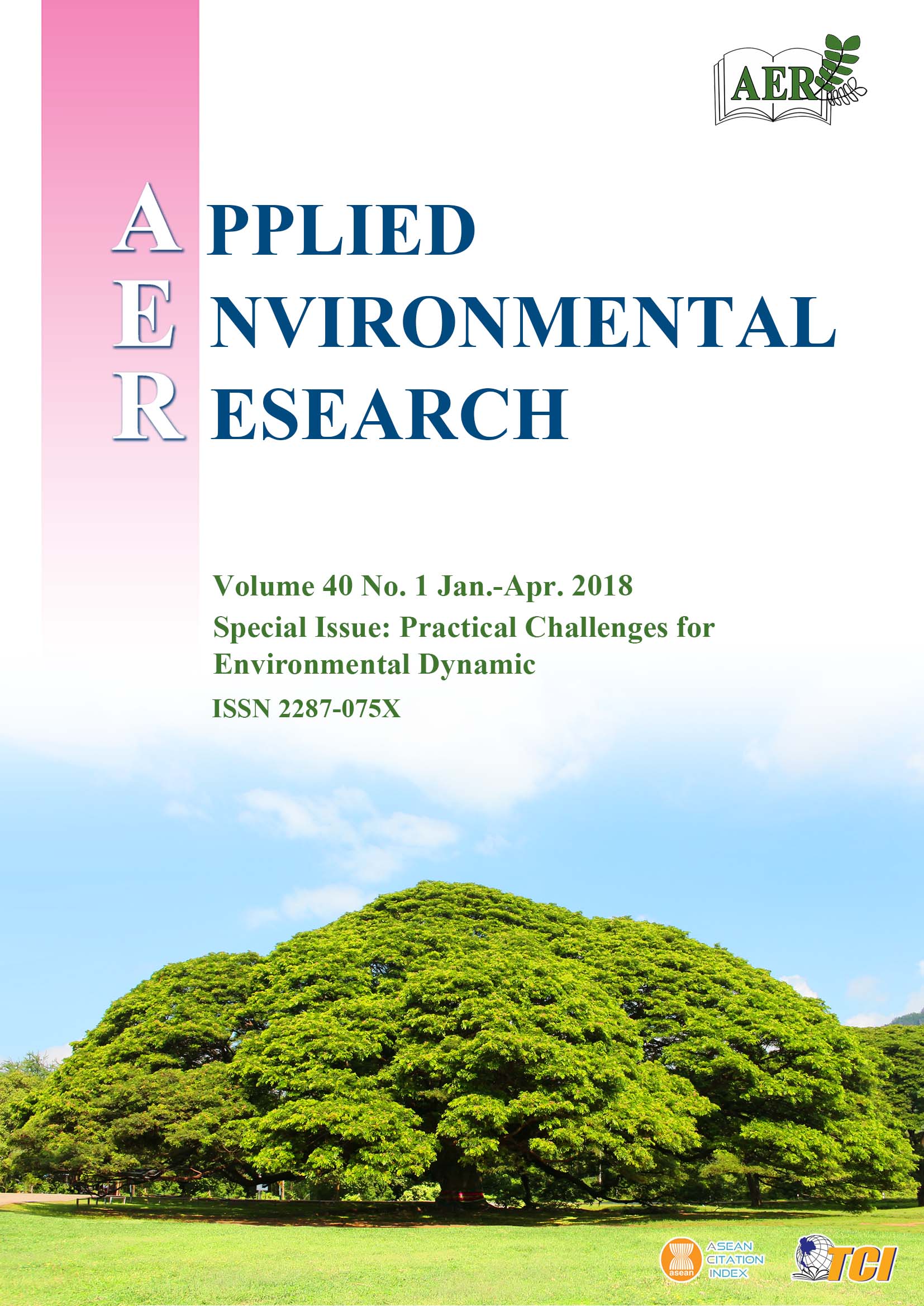Evaluation of Greenhouse Gas Emissions from Municipal Solid Waste (MSW) Management: Case Study of Lampang Municipality, Thailand
Main Article Content
Abstract
The issue of greenhouse gas (GHG) emissions from municipal solid waste (MSW) is important in the context of climate change. Reduction of GHGs from waste disposal systems is one of the management strategies forming part of Thailand’s National Economic and Social Development Plan. This project evaluated emissions from a municipal solid waste system covering transportation and disposal in Lampang Municipality, northern Thailand. GHG emissions from transportation were estimated by the Institute for Global Environmental Strategies (IGES) based on the travel distance of the vehicles, using a vehicle emission model and vehicle fuel consumption. GHG emissions during the disposal process were also estimated based mainly on the model of IGES. The results indicated that GHG emissions from sanitary landfill were highly dominated by methane (CH4) emissions (20,346 tons CO2eq a-1). In addition, carbon dioxide (CO2) was emitted (226 tons a-1) from the transportation process. This evaluation found that GHG emission estimates based on travel distance were lower than those based on fuel consumption (44 %). Furthermore, changing from diesel fuel to compressed natural gas will reduce transportation emissions by approximately 7 %.
Article Details

This work is licensed under a Creative Commons Attribution-NonCommercial 4.0 International License.
Published articles are under the copyright of the Applied Environmental Research effective when the article is accepted for publication thus granting Applied Environmental Research all rights for the work so that both parties may be protected from the consequences of unauthorized use. Partially or totally publication of an article elsewhere is possible only after the consent from the editors.

